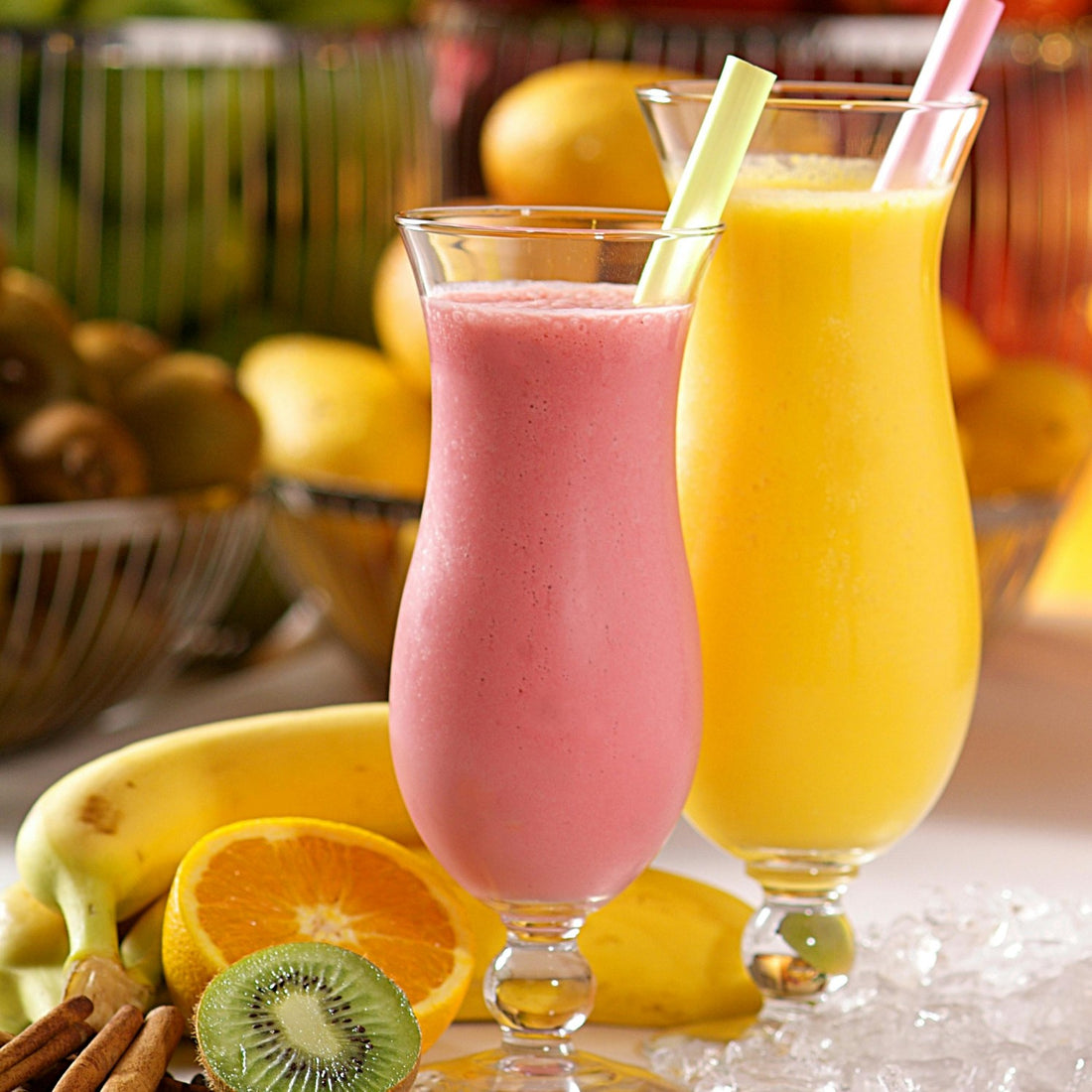Understanding the nutritional value of fruits and vegetables is essential for maintaining a balanced diet and promoting overall health and well-being. Among the crucial minerals that our bodies require, potassium and magnesium play pivotal roles in various physiological functions.
Potassium helps regulate fluid balance, nerve function, and muscle contractions, while magnesium is essential for energy production, muscle and nerve function, and bone health. Incorporating foods rich in these minerals into our diets can contribute significantly to our overall health.
Fortunately, a variety of fruits and vegetables offer an excellent natural source of potassium and magnesium. We will delve into the realm of fruits and vegetables to uncover the varieties that stand out for their high potassium and magnesium content, offering valuable insights into crafting nutritious and wholesome meals.
Whether you are looking to enhance your athletic performance, manage blood pressure, or simply improve your overall health, discovering the abundance of these minerals in plant-based foods can be a delicious and nutritious journey.
Understanding the Importance of Potassium for Your Health
Potassium is a crucial mineral that plays a vital role in maintaining overall health. It helps regulate fluid balance, muscle contractions, and nerve signals in the body. Additionally, potassium is essential for proper heart function and blood pressure regulation.
Consuming foods high in potassium can help prevent conditions such as high blood pressure and heart disease, making it a key nutrient to prioritize in your diet. Increasing your potassium intake is important for optimal health. Foods rich in potassium include fruits like bananas, oranges, and avocados, as well as vegetables such as spinach, sweet potatoes, and tomatoes.
What Vitamins and Minerals Are in Green Fruits and Vegetables?
By incorporating these potassium-rich foods into your daily meals, you can support your body's electrolyte balance and promote heart health. Potassium also works in tandem with other minerals like magnesium to support various bodily functions. Together, these electrolytes help maintain proper muscle function and support nerve communication throughout the body.
Magnesium stands as a mineral of paramount importance in maintaining optimal health and well-being, playing a crucial role in numerous physiological functions within the human body.
From supporting energy production to aiding muscle and nerve function, magnesium is involved in a myriad of essential processes. Despite its significance, many individuals may not be fully aware of the profound impact magnesium has on their overall health.
Including a variety of potassium and magnesium-rich foods in your diet can help ensure you're meeting your daily nutrient requirements for optimal health and wellbeing.
How Can You Increase Your Magnesium and Potassium Intake?
To boost your intake of magnesium and potassium, consider incorporating a range of fruits and vegetables into your diet. Some of the best sources of magnesium include leafy green vegetables like spinach and kale, as well as nuts, seeds, and whole grains. These foods are not only rich in magnesium but also offer a wide array of other essential nutrients for overall health. In terms of potassium-rich foods, options like bananas, potatoes, and beans are excellent choices to help you meet your daily requirements.
Additionally, incorporating citrus fruits, such as oranges and grapefruits, can also contribute to your potassium intake. By diversifying your diet with a mix of fruits, vegetables, nuts, and seeds, you can easily increase your magnesium and potassium levels for optimal wellness. Including magnesium-rich foods can help support processes like energy production, muscle function, and bone health, while potassium aids in regulating fluid balance and promoting cardiovascular health.

What Are the Benefits of Potassium and Magnesium in Fruits and Vegetables?
Potassium and magnesium offer a host of health benefits when consumed through fruits and vegetables. Potassium helps regulate heart function and blood pressure by counteracting the effects of sodium in the body. It also plays a role in nerve function and muscle contractions, making it essential for overall health and wellbeing.
Magnesium, on the other hand, is involved in over 300 biochemical reactions in the body, including energy production, muscle function, and bone health. It also supports heart health by helping to regulate blood sugar levels and blood pressure.
Benefits of Vitamins and Minerals in Fruits and Vegetables
Potassium and magnesium are essential minerals that play crucial roles in maintaining good health. Fruits and vegetables are excellent sources of these nutrients, and their consumption offers various benefits:
Potassium:
- Heart Health: Potassium helps regulate blood pressure by balancing sodium levels. Adequate potassium intake can lower the risk of hypertension and related cardiovascular diseases.
- Muscle Function: Potassium is vital for proper muscle contraction and nerve signals. It supports the functioning of smooth, skeletal, and cardiac muscles.
- Fluid Balance: It helps maintain the body's fluid balance, contributing to proper hydration and electrolyte equilibrium.
- Kidney Function: Potassium assists in kidney function by promoting the elimination of waste and excess fluids from the body.
- Bone Health: While not a direct contributor to bone density, potassium may help in preventing the loss of calcium through urine, indirectly supporting bone health.
- Metabolism: Potassium is involved in various metabolic processes, including the conversion of glucose into glycogen for energy storage.
- Acid-Base Balance: It plays a role in maintaining the body's acid-base balance, helping to regulate pH levels.
Magnesium:
- Muscle and Nerve Function: Magnesium is essential for muscle and nerve function, including the relaxation of muscles after contraction.
- Bone Health: It contributes to bone density and strength by aiding in the absorption and metabolism of calcium and vitamin D.
- Heart Health: Magnesium supports a healthy cardiovascular system by regulating heart rhythm and blood pressure.
- Energy Production: It is a cofactor in the production of ATP (adenosine triphosphate), the primary energy currency of the body.
- Blood Sugar Regulation: Magnesium helps insulin function properly, contributing to blood sugar regulation and reducing the risk of type 2 diabetes.
- Immune System Support: Magnesium is involved in immune system function, helping the body defend against infections and diseases.
- Stress Reduction: It plays a role in managing stress and promoting relaxation, as it influences the release of certain neurotransmitters.
Consuming a varied and balanced diet with an abundance of fruits and vegetables helps ensure an adequate intake of both potassium and magnesium for overall health and well-being.
Which Fruits and Vegetables Have the Most Potassium and Magnesium?
When it comes to fruits high in potassium and magnesium, bananas stand out as a top choice. This versatile fruit not only provides a significant amount of potassium but also contains magnesium, making it a nutritious addition to your diet. Other fruits like avocados, oranges, and cantaloupe also offer a good dose of these essential minerals, promoting optimal health and wellbeing.
Leafy green vegetables are excellent sources of potassium and magnesium, with options like spinach, kale, and Swiss chard ranking high in these essential minerals. These vegetables not only provide a healthy dose of potassium but also offer a significant amount of magnesium, promoting proper muscle function and nerve communication in the body. Root vegetables like sweet potatoes, carrots, and beets are also rich in potassium and magnesium, making them valuable additions to a balanced diet.

Which Fruits Are High in Potassium and Magnesium?
Several fruits are rich in potassium and magnesium. Including these fruits in your diet can contribute to meeting your daily requirements for these essential minerals. Here are some fruits that are particularly high in potassium and magnesium:
Fruits High in Potassium:
- Bananas: One of the most well-known potassium-rich fruits, bananas are convenient and versatile.
- Oranges: Oranges and orange juice provide a good dose of potassium along with vitamin C.
- Cantaloupe: This sweet and refreshing melon is a good source of potassium.
- Honeydew Melon: Another melon variety, honeydew, is rich in potassium.
- Kiwi: Kiwi not only offers potassium but is also packed with vitamin C and fiber.
- Mango: Mangoes are not only delicious but also contribute to your potassium intake.
- Papaya: Papaya is a tropical fruit that provides potassium along with digestive enzymes.
- Avocado: Avocado is a unique fruit that is not only high in potassium but also healthy monounsaturated fats.
Fruits High in Magnesium:
- Bananas: In addition to potassium, bananas contain magnesium, making them a versatile choice.
- Avocado: Avocado is not only rich in potassium but also a good source of magnesium.
- Figs: Dried figs are particularly high in magnesium and provide a natural sweetness.
- Guava: Guava is a tropical fruit that offers both potassium and magnesium.
- Kiwi: Kiwi contains magnesium along with potassium, vitamin C, and fiber.
- Papaya: Papaya is not only rich in potassium but also contains magnesium.
- Raspberries: Raspberries are a magnesium-rich berry option.
- Strawberries: Strawberries are not only delicious but also contribute to your magnesium intake.
Tips for Incorporating These Fruits:
- Smoothies: Blend fruits into smoothies for a delicious and nutritious drink.
- Fruit Salads: Create colorful fruit salads with a variety of potassium and magnesium-rich fruits.
- Snacking: Grab a piece of fruit as a convenient and healthy snack.
- Desserts: Use these fruits in desserts or enjoy them on their own for a sweet treat.
Remember to maintain a balanced diet that includes a variety of fruits, vegetables, and other nutrient-dense foods to ensure you get a broad spectrum of essential nutrients, including potassium and magnesium.
What Vegetables Are High in Potassium and Magnesium?
Including vegetables high in potassium and magnesium in your diet is essential for overall health. Here are some vegetables that are particularly rich in these minerals:
Vegetables High in Potassium:
- Sweet Potatoes: Sweet potatoes are not only rich in potassium but also provide fiber and various vitamins.
- Spinach: Spinach is a leafy green vegetable with a high potassium content.
- Potatoes: Both sweet and regular potatoes contain significant amounts of potassium.
- Tomatoes: Tomatoes, whether fresh or in the form of tomato sauce, are a good source of potassium.
- Beans (e.g., Kidney Beans): Kidney beans and other legumes are rich in potassium, fiber, and protein.
- Beet Greens: The greens of beets are higher in potassium compared to the beetroot itself.
- Butternut Squash: Butternut squash is a winter squash that provides potassium along with vitamins.
- Brussels Sprouts: Brussels sprouts are not only high in potassium but also offer fiber and vitamin C.
Vegetables High in Magnesium:
- Spinach: Spinach is not only a potassium powerhouse but also a great source of magnesium.
- Kale: Kale is a nutrient-dense leafy green that contains magnesium along with various other vitamins.
- Swiss Chard: Swiss chard is another leafy green that contributes to magnesium intake.
- Collard Greens: Collard greens are rich in magnesium and can be included in a variety of dishes.
- Artichokes: Artichokes are not only a good source of magnesium but also offer dietary fiber.
- Edamame: Edamame, or young soybeans, provide magnesium along with protein.
- Avocado: Avocado, while commonly known for its potassium content, also contains magnesium.
- Broccoli: Broccoli is a versatile vegetable that provides magnesium along with other essential nutrients.
Tips for Incorporating These Vegetables:
- Roasted Vegetables: Roast vegetables like sweet potatoes, Brussels sprouts, and broccoli for a flavorful side dish.
- Stir-Fries: Incorporate vegetables such as kale, spinach, and bell peppers into stir-fries.
- Salads: Create nutrient-packed salads with a variety of leafy greens, tomatoes, and other colorful vegetables.
- Mashed Potatoes: Use sweet potatoes or regular potatoes to make mashed potatoes for a potassium boost.
- Soups: Prepare soups with vegetables like spinach, beans, and tomatoes.
How to Get Enough Vitamins and Minerals Found in Fruits and Vegetables?
Remember to consume a variety of vegetables to ensure a well-rounded intake of essential nutrients. Including a colorful array of vegetables in your meals helps provide diverse vitamins, minerals, and antioxidants beneficial for overall health.

